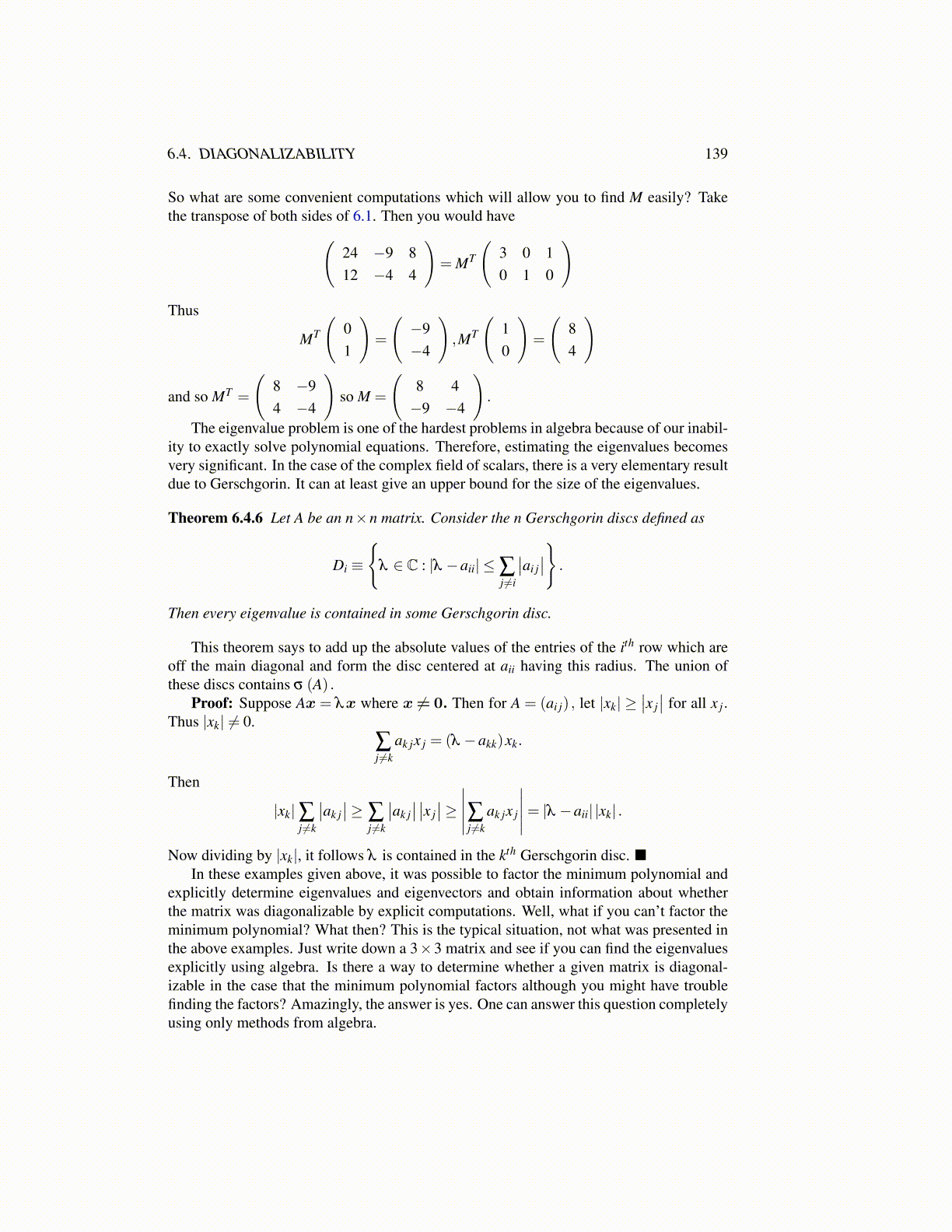
6.4. DIAGONALIZABILITY 139
So what are some convenient computations which will allow you to find M easily? Takethe transpose of both sides of 6.1. Then you would have(
24 −9 812 −4 4
)= MT
(3 0 10 1 0
)
Thus
MT
(01
)=
(−9−4
),MT
(10
)=
(84
)
and so MT =
(8 −94 −4
)so M =
(8 4−9 −4
).
The eigenvalue problem is one of the hardest problems in algebra because of our inabil-ity to exactly solve polynomial equations. Therefore, estimating the eigenvalues becomesvery significant. In the case of the complex field of scalars, there is a very elementary resultdue to Gerschgorin. It can at least give an upper bound for the size of the eigenvalues.
Theorem 6.4.6 Let A be an n×n matrix. Consider the n Gerschgorin discs defined as
Di ≡
{λ ∈ C : |λ −aii| ≤∑
j ̸=i
∣∣ai j∣∣} .
Then every eigenvalue is contained in some Gerschgorin disc.
This theorem says to add up the absolute values of the entries of the ith row which areoff the main diagonal and form the disc centered at aii having this radius. The union ofthese discs contains σ (A) .
Proof: Suppose Ax = λx where x ̸= 0. Then for A = (ai j) , let |xk| ≥∣∣x j∣∣ for all x j.
Thus |xk| ̸= 0.∑j ̸=k
ak jx j = (λ −akk)xk.
Then
|xk|∑j ̸=k
∣∣ak j∣∣≥ ∑
j ̸=k
∣∣ak j∣∣ ∣∣x j
∣∣≥ ∣∣∣∣∣∑j ̸=kak jx j
∣∣∣∣∣= |λ −aii| |xk| .
Now dividing by |xk|, it follows λ is contained in the kth Gerschgorin disc. ■In these examples given above, it was possible to factor the minimum polynomial and
explicitly determine eigenvalues and eigenvectors and obtain information about whetherthe matrix was diagonalizable by explicit computations. Well, what if you can’t factor theminimum polynomial? What then? This is the typical situation, not what was presented inthe above examples. Just write down a 3×3 matrix and see if you can find the eigenvaluesexplicitly using algebra. Is there a way to determine whether a given matrix is diagonal-izable in the case that the minimum polynomial factors although you might have troublefinding the factors? Amazingly, the answer is yes. One can answer this question completelyusing only methods from algebra.